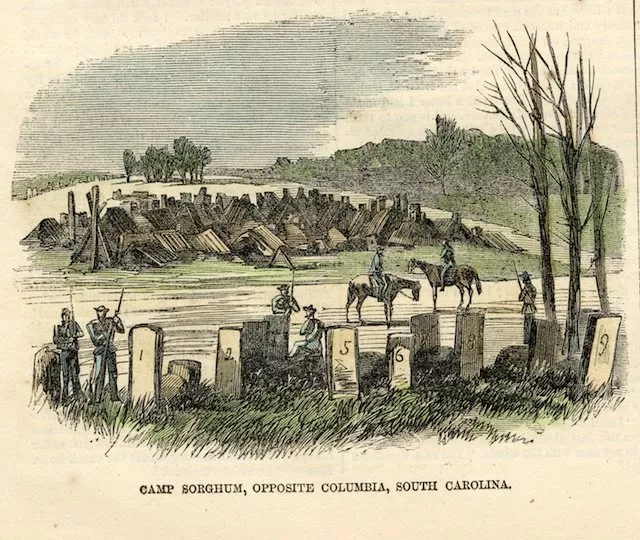West Side of Saluda River
Camp Sorghum
Located on the Lexington side of the Saluda River, the prisoner of war camp received its name from the meager rations of molasses (sorghum) and cornmeal afforded its inmates. An estimated 1,400 Union soldiers were kept on the 5-acre plot. The prison site offered no shelter or latrines. Shelter at the prison proved equally Spartan with inmates seeking refuge from the elements in shallow holes covered with twigs, leaves, and pine boughs. At least 8 men died from disease and exposure. Escapes were frequent, with 373 inmates making their way to freedom by the time the camp was moved in December 1864.
